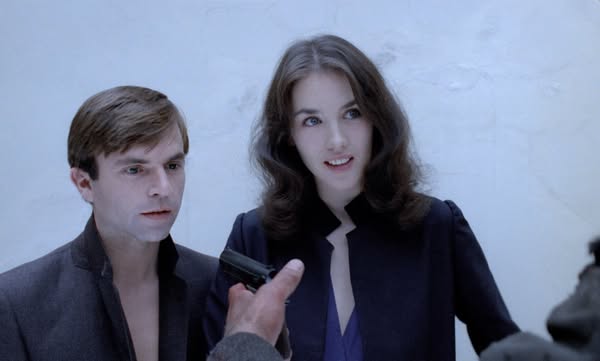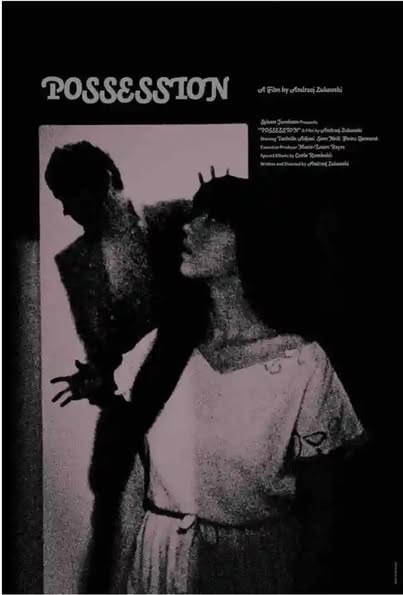Possession (1981)

Possession (1981), directed by Andrzej Żuławski, is a surreal and unsettling psychological horror film that delves into the complexities of love, obsession, and identity. Set against the backdrop of a divided Berlin during the Cold War, the film is characterized by its provocative themes, striking visuals, and intense performances, making it a cult classic that continues to resonate with audiences.
The narrative follows Mark (Sam Neill), a man whose marriage to Anna (Isabelle Adjani) begins to unravel as she exhibits increasingly erratic behavior. Mark returns home after a mysterious absence and discovers that Anna is not only emotionally distant but also involved in a disturbing relationship with a strange creature. As Anna’s behavior spirals out of control, the film blurs the lines between reality and madness, exploring the depths of human despair and the impact of trauma on personal relationships.

One of the film’s most striking aspects is its visceral and raw performances, particularly by Isabelle Adjani, whose portrayal of Anna earned her the Best Actress award at the Cannes Film Festival. Adjani’s performance is both haunting and mesmerizing, capturing the character’s descent into madness with a level of intensity that is both unsettling and compelling. Sam Neill also delivers a powerful performance as Mark, embodying the confusion and anguish of a man grappling with his wife’s transformation.

Visually, Possession is a tour de force, featuring bold cinematography and a disorienting style that enhances the film’s psychological tension. Żuławski employs a mix of surreal imagery and grotesque elements, creating a dreamlike atmosphere that amplifies the sense of dread and chaos. The use of color and lighting further accentuates the emotional turmoil experienced by the characters, immersing the viewer in their psychological landscape.

The film’s score, composed by Andrzej Korzyński, adds another layer of intensity, with its haunting melodies and unsettling soundscapes echoing the film’s themes of alienation and despair. The music complements the visual storytelling, enhancing the emotional depth of key scenes and contributing to the overall atmosphere of unease.
Possession is not merely a horror film; it is a profound exploration of the human psyche, addressing themes of love, trauma, and the fragility of identity. It challenges viewers to confront their own fears and desires, prompting reflection on the nature of relationships and the darkness that can lurk within.
In summary, Possession is a bold and unconventional film that remains a significant work in the horror genre. Its striking performances, innovative visual style, and deep psychological exploration make it a compelling and disturbing experience that lingers long after the credits roll. As a testament to Żuławski’s unique vision, Possession continues to captivate and provoke, solidifying its place as a landmark in cinema history.











